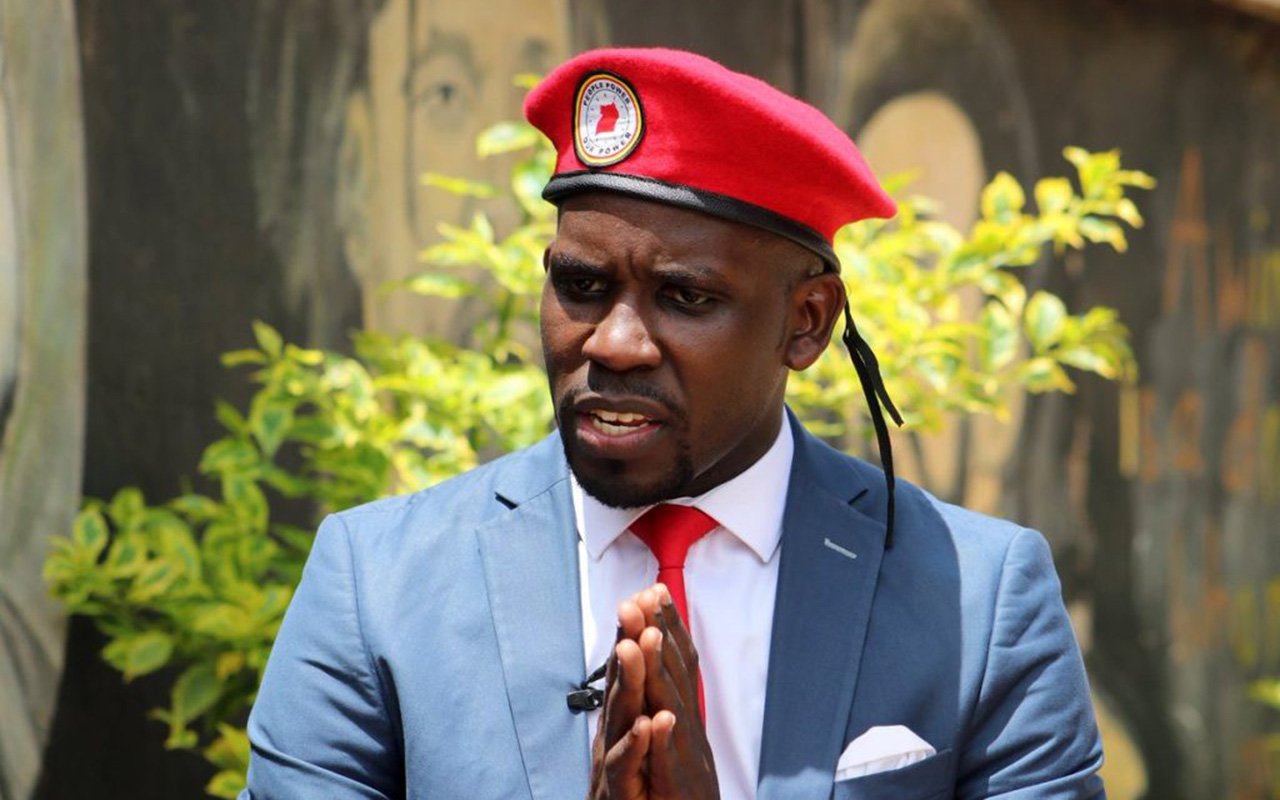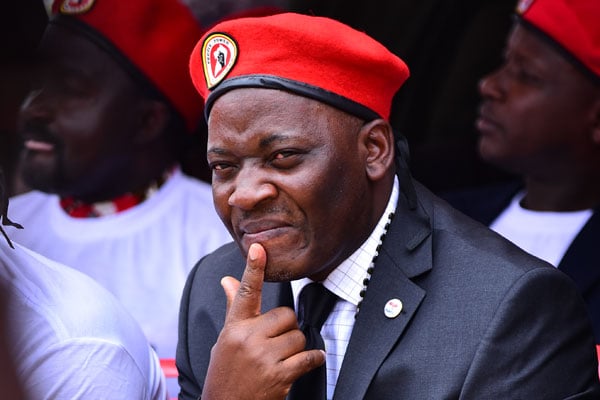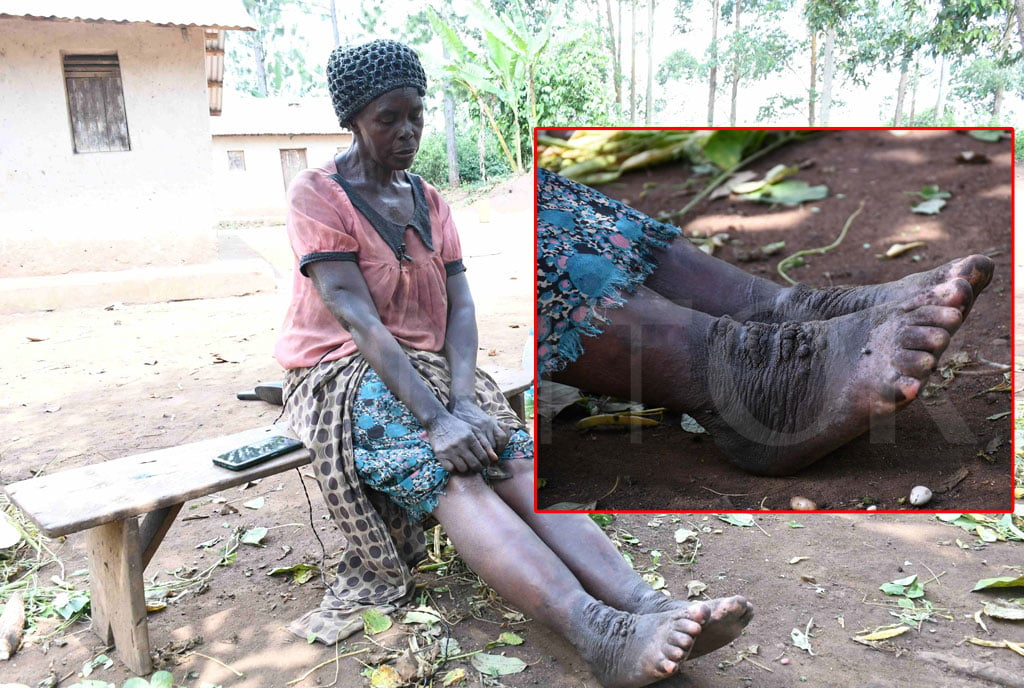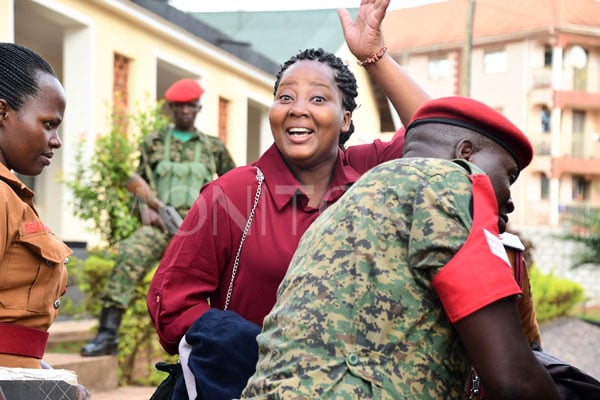
Leader of the Opposition Parliament Joel Ssenyonyi. PHOTO/FILE
Without laying out a written detailed agenda, Mr Joel Ssenyonyi, the Nakawa East Member of Parliament (MP), took over office of Leader of the Oppositiin on Parliament (LoP) early this year, taking over from the now embattled Nyendo-Mukungwe MP, Mr Mathias Mpuuga.
This approach of having no detailed plan contrasted sharply with that of Mpuuga who had a legislative agenda when he was appointed in 2021.
Mpuuga’s detailed legislative agenda had issues such as electoral reforms which he had promised would be key, and the Opposition would channel their efforts towards passing the Constitutional (Amendment) Bill, 2019, that was presented by Ndorwa West Wilfred Niwagaba.
The Bill had sweeping electoral reforms, including Ugandans in the diaspora and prisons being included in the voters’ registrar, competitive recruitment of leaders of constitutional bodies, fixing terms of office for commissioners in the Electoral Commission, reduction of the size of Parliament, reduction of special interest groups, restrictions of supplementary expenditures during election periods, the role of security organs in elections, relinquishing public assets during campaigns, media coverage of candidates and transmission of election results.
Mpuuga insisted that Uganda lacked what he called “a clearly defined transitional procedure” of both leadership and operations of government.
“It’s only presumed under actions such as swearing-in and approval of appointments,” Mpuuga’s legislative agenda read.

Former LoP Mathias Mpuuga. PHOTO/MICHAEL KAKUMIRIZI
Under the Constitution, the Opposition wants to clip the President’s influence, more so during elections. They insist that it’s wrong for an incumbent to continue exercising powers of the head of State, head of government, commander-in-chief, and chairperson of National Security Council, which they say makes him influence the partisan deployment of the military during elections.
To cure such anomalies, the Opposition wants to resurrect the Presidential Transition Bill that was presented by Buikwe South MP Michael Lulume Bayigga in 2014.
The plan is reviewing the Bill with the intent of broadening its scope and subsequently developing a holistic Bill that they say will seek to address transition management within the entire government and will be developed to detach an incumbent from elections management and organisation.
Among other electoral reforms, that the Mpuuga-led Opposition wanted to advance, were provisions that would further guarantee the independence of the EC through pursuing amendments that will ensure public selection of the electoral body’s members and commissioners through a process initiated by statutory bodies such as the Judicial Service Commission, Uganda Law Reform Commission, Uganda Law Society, and Law Development Centre.
Mpuuga didn’t achieve any of the stated reforms, and upon assuming office, Ssenyonyi said he would focus on getting back NUP supporters who are either in jail or have disappeared without being accounted for.
“If this issue of missing persons is left the way it is, the government will take it as a tactic it can deploy and, therefore, we will bring it back,” Ssenyonyi said upon taking office.
Before being dumped at the end of last year, Mpuuga had come under immense pressure from NUP supporters for not pressing the government over the disappearance of the supporters. The pressure was immense, which prompted Mpuuga to lead Opposition MPs to walk out of Parliament.
The new LoP’s efforts to also get about 28 NUP supporters who have been charged before the General Court Martial set free have also not yielded any fruits.
Perhaps to show that he takes the matter seriously, Ssenyonyi has been attending court martial sessions, but still NUP supporters haven’t been released.
“We are hearing that these people are being approached by ministers who are proposing that they accept the charges and they give them houses, but they are refusing. We are saying that if they have evidence then they should produce it in court,” Ssenyonyi said.
Since he hasn’t been successful, Ssenyonyi has focused mainly on corruption allegations against Parliament that have emerged in the aftermath of the online Parliament exhibition.
With Mpuuga implicated for pocketing Shs500 million as a “service award”, Ssenyonyi was among the NUP leaders who insisted that the former LoP be booted as commissioner.
Though Speaker Anita Among told Ssenyonyi and the entire NUP leadership that it was not legally possible to get rid of Mpuuga by just writing a letter, they still insisted that Mpuuga was no longer a commissioner.
“We took a legal and political decision that Honourable Mpuuga was no longer a commissioner of Parliament and replaced him with Hon [Francis] Zaake. We shall stick with our decision,” Ssenyonyi said, but Mpuuga has remained commissioner as Among had earlier clarified.
“The commissioners, once elected by Parliament, serve the entire body and can only vacate their position or be removed by the law. Parties do not possess the necessary legal authority to recall a commissioner once elected by Parliament,” Among said.
Still, Ssenyonyi has premised the six months he has been in office on the fight against corruption, taking advantage of the parliamentary exhibition to write to anti-corruption agencies such as the Inspectorate of Government, the Financial Intelligence Authority (FIA), the Directorate of Public Prosecution, and the Office of the Auditor General to investigate Among, and Clerk to Parliament Adolf Mwesige on grounds that they were involved in the questionable expenditure of billions of public money for personal gain.
Citing findings by the Parliament exhibition, Ssenyonyi wanted the anti-graft agencies to look into how Among received a sum of Shs2.6 billion per diem facilitation from Parliament in 146 days for foreign trips yet she did not travel.
Ssenyonyi cited a non-existent trip to Midland in South Africa where the Speaker allegedly travelled for 20 days and was paid Shs318,000 million.
Out of the total Shs2.6 billion, Ssenyonyi said Among was being paid by Parliament up to $4,000 (Shs15.3 million) daily contrary to her official per diem rate of $990 (Shs3.8 million).
Ssenyonyi scandal
Ssenyonyi hasn’t been spared in the corruption scandal since it emerged that he had requisitioned per diem of a five-day trip to Kenya’s capital Nairobi $4,250 (Shs16.3 million), yet he was out of the country for one day.
Ssenyonyi seemed to have got himself out of the mess by quickly refunding the money, saying it had been irregularly allocated to him for his trip to Nairobi to see ailing Kawempe North MP Muhammad Ssegirinya, without his knowledge.
“I saw a reflection on my account; they had processed money for five instead of one day, which I had indicated I was going for, but I was told they were processing for others,” Ssenyonyi said. “I was there for one night so I shouldn’t have been paid for five days, but the process was delayed so the money wasn’t deducted from the March emolument and I was told it would be deducted from the April emoluments.”
Documents this newspaper got from the Speaker’s office indicated that Ssenyonyi had requested to be away for five days. The documents show that Ssenyonyi reportedly requested for $4,250 and $900 for a business class ticket.
Having refunded the money, Ssenyonyi turned his efforts to mobilising NUP MPs to sign the censure motion against the commissioners – Mpuuga, Prossy Akampurira, Esther Afoyochan, and Solomon Silwanyi – for pocketing Shs1.7 billion in “service awards”, an effort championed by Lwemiyaga MP Theodore Ssekikubo.
“We have discussed this matter in shadow cabinet and we have made it clear this so-called award was wrong and I’m encouraging my colleagues in the Opposition to sign because this was irregular,” Ssenyonyi said.
Ssenyonyi’s tenure will end in 2026, but his efforts are cut out to have a united Opposition, and most importantly, a united NUP.
With Ssekikubo’s efforts not yielding any fruits, Ssenyonyi has now come under online pressure to resign from the LoP’s office after allegations emerged that he pocketed Shs1 billion during his tenure as the chairperson of the Parliamentary Committee on Commissions, Statutory Authorities, and State Enterprises (Cosase).
The allegations were made by one Dean Saava Lubowa, prompting Ssenyonyi to write an intention to sue if the former journalist doesn’t retract his claims.
“The purpose of this letter is to demand a retraction of the false statements and an unequivocal apology, to be published both in writing and video format on the same forum where the allegations were aired, within 48 hours from the date of this letter,” the notice read in part.
With pressure mounting, Ssenyonyi says he is being witch-hunted because of his fight against graft.
“That’s what the thieves in Parliament – whom we’re exposing – have resorted to through their propagandists. Up to now we’re waiting for the said audios! Also, someone needs to advise these fellows to be consistent with the figure they keep talking about. You can’t say Shs1b today, tomorrow Shs1.4b, then the other day Shs1.7b. Be organised even as you spew out your propaganda,” Ssenyonyi said.








